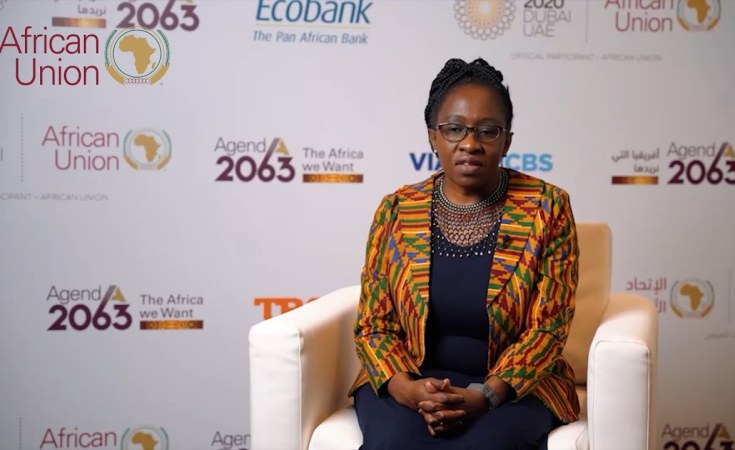Inadequate infrastructure has long been identified as one of the biggest brakes on sustainable and inclusive economic growth in Africa.
More comprehensive power, water, transport and IT networks are needed to make the continent more competitive in the global economy and to maximise the potential of the emerging African Continental Free Trade Association (AfCFTA). Pan-African cooperation is needed to achieve this infrastructural transformation and it is with this in mind that the second Dakar Financing Summit is being held in the Senegalese capital in February 2023.
The Summit is designed to support the Programme for Infrastructure Development in Africa (PIDA), which was adopted by the AU Assembly in July 2012. The continent’s infrastructure development blueprint for 2012-2040, PIDA provides a strategic framework for priority projects aimed at transforming the continent’s economic prospects. PIDA is jointly coordinated by the African Union Commission, the African Union Development Agency (AUDA-NEPAD), African regional economic communities (RECs) and the African Development Bank (AfDB).
PIDA dovetails nicely with AUDA-NEPAD’s mandate to coordinate and execute priority regional and continental projects to promote cross-border integration towards the rapid realisation of Agenda 2063, while strengthening the administrative, technical and infrastructural capacities of African Union member states and regional bodies. Transformed from the then NEPAD Planning and Coordinating Agency in June 2018, the organisation also fosters collaboration in Africa with the private sector and coordinates, facilitates and promotes cooperation with Africa’s strategic partners and stakeholders to ease the mobilisation of potential financial support.
The first Dakar Financing Summit (DFS-1), which was held in June 2014, brought together African political leaders, business leaders, regulators and policymakers to seek solutions to the obstacles that could hinder or delay PIDA project deployment. The first Summit had a simple aim: to accelerate financial mobilization from both national and international sources to support regional high-impact infrastructure projects.
DFS-1 supported 16 projects, some of them huge construction projects, which are now at various stages of development. These include the Brazzaville-Kinshasa Road-Rail Bridge, on which the feasibility study has now been completed; the expansion of the Port of Dar es Salaam, on which construction is already underway; and the long awaited Nigeria-Algeria gas pipeline project – otherwise known as the Trans-Sahara Gas Pipeline (TSGP) – which is at the tendering stage.
Ambition to realise 69 key projects
The focus of the second Dakar Financing Summit (DFS-2) is the implementation the Second PIDA Priority Action Plan (PAP 2), which comprises 69 cost-effective projects with expected combined investment of US$160bn. As highlighted under the African Union’s Agenda 2063, projects need to be developed to world class standards so that they are built to last. That the focus is on encouraging intra-African trade is clear from the fact that 67% of the investment will go to transport projects, with 24% allocated to the energy sector.
PIDA PAP 2 can provide a timely boost to economic development at a time when Africa is seeking to recover from the twin economic shocks of the Covid-19 pandemic and impact on global trade and supply chains of the Russian invasion of Ukraine. The Plan takes a cross-sectoral approach that focuses on job creation and sustainable development. Since PAP 2 was adopted by the African Union General Assembly in 2021, AUDA-NEPAD has worked on identifying the type of assistance and resources needed to enable these projects to apply for financing.
DFS-2 will focus on project preparation and capacity building, while seeking to harmonise support between various African partners, such the EU’s Global Gateway programme, the G7 Partnership for Global Infrastructure Investment and the US Power Africa initiative. Rather than viewing each project as an isolated development, the Summit offers an opportunity to drive forward infrastructural development and Africa’s long-term economic growth prospects by coordinating development across different sectors and different countries.
It is vital that financing for the identified projects is scaled up, so the Summit will explore practical ways to improve project preparation and identify innovative funding structures involving both public and private financing. It is also important to ensure that the general public understands what PIDA is trying to achieve with the process, including by moving projects from the conceptualization phase to actual construction.
In short, the Dakar Summit is an ideal opportunity to accelerate the implementation of high impact infrastructure projects in various African countries. It can contribute to the long-term transformation of the African continent by supporting projects that will promote regional integration, increase trade flows between African countries in support of the AfCFTA, and lift long-term growth prospects.


